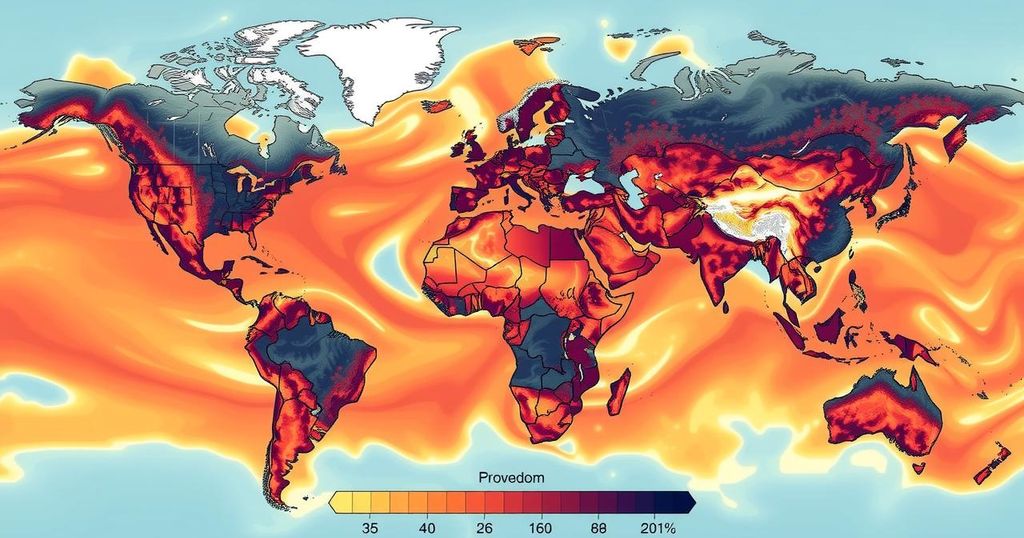In 2024, climate change impacts have surged, making it likely the warmest year on record. Human activities continue to drive greenhouse gas levels to unprecedented heights, leading to extreme weather events worldwide. Urgent calls for action from global leaders stress the need to reduce emissions and transition to renewable energy as WMO plans for significant initiatives in 2025 focusing on climate adaptation and mitigation.
As the global community enters 2025, the World Meteorological Organization (WMO) highlights that 2024 has been marked by unprecedented climate impacts, likely to be recorded as the hottest year on record. This phenomenon has been attributed to intense human-induced greenhouse gas emissions that continue to rise, exacerbating the situation for future climate stability.
UN Secretary-General António Guterres raised alarm, stating that the last decade has been the hottest in history, culminating in the urgency to address climate change dramatically. He emphasized that immediate and sustained action is crucial, arguing that countries must prioritize significant reductions in emissions and shift towards renewable energy sources.
In 2024, the toll of climate change was palpable, evidenced by extreme weather patterns around the globe that resulted in catastrophic flooding, record rainfall, and severe heatwaves, including temperatures exceeding 50 °C in multiple regions. These occurrences have highlighted the need for the WMO’s initiative, Early Warnings for All, which emphasizes preparedness against climate extremes.
Furthermore, WMO Secretary-General Celeste Saulo marked her first year with repeated Red Alerts regarding the state of climate, stressing the organization’s responsibility to advocate for immediate action as it celebrates its 75th anniversary in 2025. Saulo cautioned that every minor increase in temperature escalates climate-related risks and extremes, making the call for unified global response increasingly pressing.
The upcoming Global Greenhouse Gas Watch initiative and the heightened focus on the cryosphere, which includes vital ice regions of Earth, signifies the WMO’s commitment to fostering climate adaptation and mitigation efforts. The year 2025 is poised to address the preservation of glaciers in conjunction with UNESCO, underlining the critical need for proactive measures to safeguard Earth’s climate systems.
Climate change represents one of the most significant challenges facing humanity today. The overarching effects are a result of rising greenhouse gas emissions mainly from human activities, which have created unprecedented climatic shifts. The WMO plays a crucial role in monitoring these changes and providing essential data regarding temperature and weather patterns. As we approach 2025, it is vital to acknowledge the trends from 2024, which have included record-breaking temperatures and extreme weather events that impact ecosystems and communities alike.
In summary, the year 2024 has been a stark reminder of the escalating climate crisis due to human actions, with dramatic increases in temperatures and extreme weather incidents. Urging a collaborative global response, both UN Secretary-General António Guterres and WMO Secretary-General Celeste Saulo emphasize the need for immediate action to mitigate damaging effects. As we enter 2025, initiatives promoting climate adaptation and mitigation, particularly concerning the cryosphere, become increasingly vital for preserving a stable climate for future generations.
Original Source: www.wam.ae






